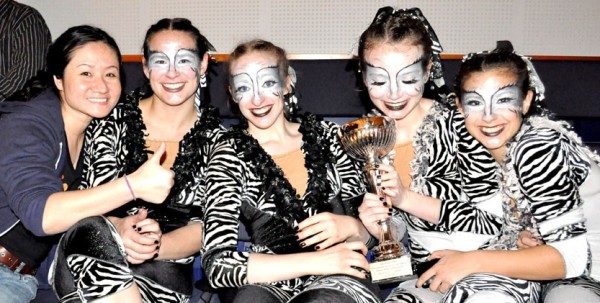Early this November a triple trapeze youth circus team from the Twin Cities called Circus Juventas traveled to Norrköping, Sweden to compete in a circus festival. Out of nearly twenty acts in their age group, South junior Brigid Fitzgerald, along with three other high school students from the metro area finished in first place.
Winning an international competition is unprecedented for Circus Juventas. In the past they have sent three different teams to a similar competitions in other countries, and never placed. “It was absolutely unexpected,” Fitzgerald.
Southwest senior Avery Young of Circus Juventas thinks in America, circus is often considered an oddity, whereas in many countries around the globe it is “ingrained in the culture.”
Sun Yanhong, coach of Circus Juventas is familiar with circus culture around the world. Yanhong started gymnastics in China at the age of four, and was recruited by a circus at the age of eleven. Run by the Chinese military, the circus drew her in with a salary that Yanhong says was higher than that of her father. She trained eight hours a day and up to five or six days a week. She performed with several different circus acts including the well known Cirque du Soleil.
The triple routine that Circus Juventas sent to the competition in Sweden trained “ten hours a week at their peak,” said Fitzgerald. Yanhong admits that she was nervous about the advantage other teams might have had in training hours, but she maintains that “[Circus Juventas] triple trapeze is a high level in the whole world.”
Yanhong describes the main difference between circus in the states compared to other countries that in the U.S.it is mainl seen as a hobby or extracurricular activity, but in places such as China and Russia circus training is “seen as a job.”







